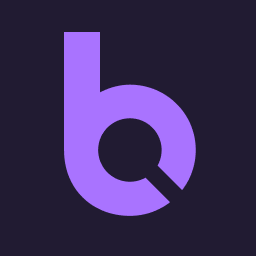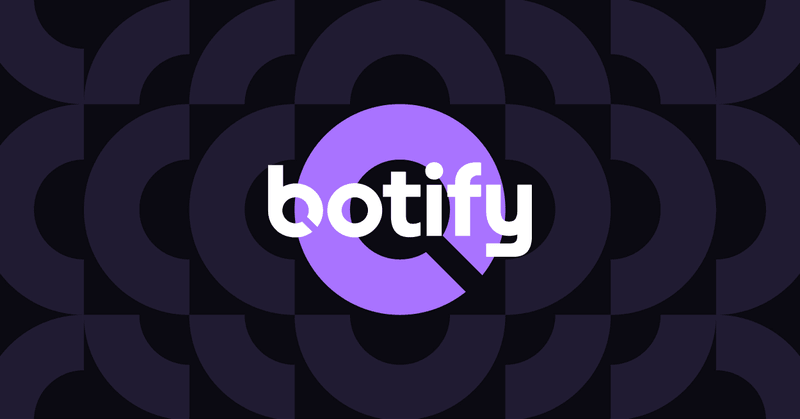
"Before I approve of X, I need to know the business case for it."
Sound familiar?
You've likely been in plenty of situations where you were asked by your boss or another stakeholder to explain the ROI of something -- be it an SEO project, a new hire, or software you want to purchase -- before they agree to sign the dotted line.
But this can prove tricky.
When it comes to SEO software in particular, it's not always clear how to connect the dots between a tool and money saved or earned.
While calculating the ROI of SEO software isn't an exact science, there are plenty of critical actions that simply wouldn't be possible (at least not at the scale of your enterprise website) without software.
So what exactly can you expect to get in return for your investment in SEO software?
Let's dive in.
1. Unifying and segmenting your data can give SEOs back time, reveal insights, and drive results faster
If you're using an SEO tool, it likely streamlines a process that can otherwise be a tedious and frustrating task for SEOs. For example, Google Search Console automatically feeds in all the queries people are using to find your content without you having to manually track those keywords -- a huge time saver, especially if you work with an enterprise website that easily ranks for millions of queries.
When it comes to Botify, some of the key processes we streamline are unifying and organizing your SEO data.
Unifying your SEO data
With Botify, all of your data lives in one place:
- 1,000+ metrics for every URL we crawl on your site
- Server log files to show you how search engine bots are crawling your site
- Keyword data that shows you what queries you're getting impressions, clicks, and ranking for (and in what position)
- Analytics data to show you how visitors are engaging with and converting on your content
(Speaking of time saved, did you know that Botify can crawl your HTML at 250 URLs/second and render JavaScript at 100 URLs/second?)
Through our full-funnel methodology, we provide visibility into your website through every stage of search. Not only does this ensure the integrity of your data, but it saves you the time you would have had to spend exporting and stitching together data from multiple sources.
Segmenting your SEO data
Once you've unified your data into one place, the next step is to analyze it. That's a difficult task for an SEO manager working on a site with hundreds of thousands or millions of URLs! That's where segmentation comes in handy.
Segmentation gives you the ability to organize your URLs into logical groups. You could create a segment for all your product pages, all your blog pages, all your forum pages, and more. How does this save you time during your SEO analysis?
Without segmentation, finding SEO issues is like finding a needle in a haystack. But with segmentation? You can audit a specific segment of your site to find issues faster.
For example, you know all your product pages should have product schema, so filter your structured data report in Botify to show you only issues from your product segment.

Or find evergreen content pages that should be receiving ongoing organic search traffic, but aren't.

Through segmentation, you'll be able to uncover issues you might not have found otherwise - or errors that would have taken days or weeks to uncover through manual work!
2. Tying SEO metrics to conversions can accelerate buy-in and drive revenue
When you're not able to tie your SEO efforts to your main business KPIs like customers and revenue, it can be difficult to get the resources and buy-in you need to do your job effectively. However, if you're able to translate your SEO metrics into KPIs your executives care about, it can help bring everyone to the same page so approval and execution of projects happens faster.
If you're a Botify customer, you should make sure to fill out the conversions section located within the "Settings" section of Botify's sidebar. If you're not able to plug in exact numbers, you can use benchmark data, which will be helpful for showing directional change.

When you do this, you'll be able to see conversion data next to all your other SEO data. Let's say, for example, that you recently made the change to server-side render your product pages (learn more about that in JavaScript 101 for SEOs). Because Botify crawls your site on a regular cadence, you'll be able to see the performance of your product page segment over time, and the % difference in conversions before and after the change to SSR.
When you can clearly show how changes to things like JavaScript impacts position, traffic, and revenue, it's much easier to evangelize your SEO work and get approval for future projects.
3. Setting up custom reporting can streamline communications
Creating reports is the best way to communicate results with colleagues and stakeholders. It helps streamline data to the right parties and ties work with results. In Botify, you can easily set up custom reporting to tie your SEO metrics with your main KPIs.
For example, you can use custom reports to view your active (visited by Google within the last 30 days) vs. non-active URLs so that your boss and other stakeholders can easily see which pages are or are not receiving organic search traffic. You may also want to segment your URLs so those stakeholders can see which of your non-active URLs are strategic (revenue-generating, top-converting, etc.) and should be prioritized.
If you have a publishing site, and your most recent articles on a trending topic are non-active and not getting any traffic from organic search, you can show the data to different members of your team to incentivize a fast solution.

With Botify, you also have the option of viewing your SEO data within Google Data Studio, Looker, and more to tie your SEO metrics to your business KPIs.

4. Real-time searcher data can help you act fast on your content strategy
Tapping into Google user data to see how real searchers are looking for and arriving on your pages can keep your content strategy agile and relevant to your audience. RealKeywords, part of Botify Analytics, utilizes the Google Search Console API to deliver this user data on tap, making it faster than ever for you to learn what your audience is searching, what's trending up or down, what devices they're using, and where they're searching from.
Here are a few common projects that can help you speed up.
- Identifying missed clicks: Instead of manually combing through your keyword data in GSC to see which queries are resulting in high impressions but low clicks, Botify has a "missed clicks" report. Using this report, you may find title tags and descriptions to make more engaging, or opportunities for implementing structured data to enhance how your results appear in the SERPs.

- Identifying and adding trending topics to your editorial calendar: Finding trending topics shouldn't require you spending hours scrolling through news and social feeds. With RealKeywords, you have a report that automatically shows you real-time trending queries.

- Find content/country mismatches (hreflang issues): Speed up the identification of hreflang issues (where content may be served to searchers in the wrong countries) with the RealKeywords country report. For example, if your French-speaking audience is clicking on pages written in American English when French content is available, there's likely an issue.

Having real searcher query data at your fingertips helps you get into the mind of your audience so that you can create intent-matching content that's relevant to their buyer's journey -- something you need if you want your content to generate revenue for your business.
And, because RealKeywords pulls its data from the GSC API, you can track keywords at scale -- you get more than the 1,000-query limit in the GSC desktop app and you don't have to manually input keywords to track, enabling enterprise SEOs to automatically track the thousands (or even millions) of keywords they rank for on an ongoing basis.

5. Crawling your site's JavaScript at scale can detect critical issues keeping your content from the index
While JavaScript can make your site more interactive and even accelerate conversions in some cases, it can also prevent visitors from finding your content if it's not implemented properly.
SiteCrawler, located in Botify Analytics, crawls your site just as a search engine would at up to 250 URLs/second, and our JavaScript Crawler renders JS at up to 100 URLs/second. When you're able to see issues related to JavaScript quickly - when otherwise it could take you days or weeks to find them - you can prioritize fixing them faster.
With Botify's JavaScript capabilities, you can:
- Pinpoint slow-loading JavaScript resources
- See how often search engine bots are crawling those JS resources
- Run an HTML-only crawl to compare to a JS-crawl. This will help you find JavaScript-loaded content and links. These may be at risk for not being included in the index (at least initially).
Check out our blog post on "Optimizing JS for Bots and Humans" to learn more.
6. ActionBoard helps to prioritize projects for your SEOs and dev team
An SEO's time is valuable - as is your developers'! Figuring out which projects to prioritize will make the most of their time can be challenging. But with the launch of ActionBoard, prioritizing high-impact projects becomes a lot easier.
Located within Botify Intelligence, ActionBoard is essentially a living to-do list, sorting tasks according to their projected impact. So, you can easily decide which project to have your SEO or dev team focus on. Or you can see which smaller projects to knock off the list while the bigger projects await approval. You can also select tasks according to themes (meaning you can handle all of your canonical tag issues at once!).

What happens if your team decides a task isn't high-priority right now? No problem! ActionBoard has plenty of other high-impact suggestions you can choose from. This can be especially helpful if your dev team isn't in-house.
Later this year, we'll also be launching AlertPanel as the second product within Botify Intelligence. AlertPanel will save your team time by leveraging intelligence to make critical task recommendations before your site's organic traffic drops. AlertPanel will also alert you to anomaly detection from your log files. If Google is hitting unexpected roadblocks impacting their ability to crawl your site, you'll know immediately.
7. A Professional Services Team can create a roadmap to success
At Botify, you can purchase customizable Professional Services packages designed to solve your key business needs. If you're about to embark on a site migration, for example, get in touch with our PS team for help. They can provide valuable guidance along the way to safeguard your traffic and ensure the best possible outcome.
Get a dedicated expert to inform your team's priorities and keep an eye on your website throughout the process. That way, you'll be able to avoid unexpected errors impacting traffic - saving your team valuable time and money!
Giving SEOs their time back to focus on strategic initiatives
Some people worry that SEO tools could replace an SEO's job, but we know that's impossible. There's simply no substitute for an SEO's expertise!
Software can give SEOs more time to use on projects that matter. So, rather than spending your time sorting through mounds of data, configuring spreadsheets, assembling reports, and the like, tools like Botify can eliminate the busywork for you so that you can do the strategic work that only you can do.
Curious to see how a platform like Botify can save your business time and money? Get a custom demo!

.svg)



.svg)


.svg)
.svg)

